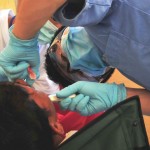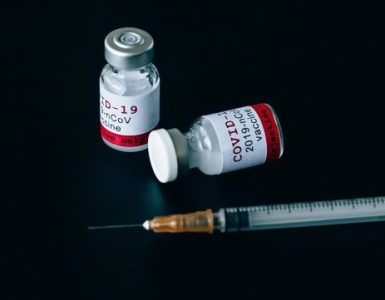 A recent survey shows that sterilization measures are inadequate at many dental clinics. There is an immediate need for thorough measures to prevent the spread of infections at such clinics.
A recent survey shows that sterilization measures are inadequate at many dental clinics. There is an immediate need for thorough measures to prevent the spread of infections at such clinics.
Preventative steps are essential to avoid the transmission of viral or bacterial infections when dental instruments, which come into contact with patients’ saliva and blood during treatment, are used to treat other patients.
For example, guidelines set by the Japanese Association for Dental Science stipulate that the handles of dental drills must be changed for every patient and sterilized using high-temperature steam as a measure to prevent infection.
But in the survey conducted by the National Institute of Infectious Diseases, only 34 percent of respondents said that used instruments were always replaced with newly sterilized tools for each patient.
Those who said they do not change instruments at all amounted to 17 percent. It is suspected that many dental clinics use the same instruments repeatedly after simply disinfecting them with alcohol or washing them. These measures fall short of eliminating the risk of viral infection.
A high proportion of dental patients are children or the elderly, who have weak resistance to infectious diseases. Findings such as those presented by the survey leave the public with a lingering fear of infection risk.
Undetected infections feared
With infections acquired at dental clinics difficult to trace to their source, cases have not been reported in Japan. But could there be cases of infection that have not yet been revealed?
Cases of clinic-acquired infections with hepatitis B and other viruses have been reported in the United States.
To prevent such infections, it is essential that dentists and clinical staff protect themselves from viral and bacterial pathogens. This is because of the possibility that they will be infected by patients, and transmit that infection, in turn, to other patients.
The recent survey showed that only about 60 percent of dentists have been immunized against hepatitis B. Measures to protect dentists from patients’ blood and saliva, such as wearing protective glasses and masks, are also not being implemented thoroughly.
There are cases in which even individuals who appear healthy have harbored viral or bacterial infections. It is vital that measures are taken on the premise that every patient could be a source of infection.
There have been recurrent cases of infection through medical treatment in Japan. One example of this was hepatitis infections caused by repeated use of syringes for vaccination.
The Health, Labor and Welfare Ministry introduced a system in 2010 to provide additional medical remuneration for hospitals if they establish resident teams of specialists in the prevention of infectious diseases.
Additional funding is also available to dental clinics if instruments are changed for each patient and sterilized between uses, but by comparison this additional payment is far smaller than that available for hospitals.
Due to an increase in the number of dentists, dental clinics have faced severe competition. It is reported that some have inadequate funds to install costly sterilization equipment because of financial difficulties.
To improve the safety of dental treatment, the government and those involved in dental services must examine the tangible measures available, including reform of remuneration for dental services.
Source: The Japan News by The Yomiuri Shimbun

















